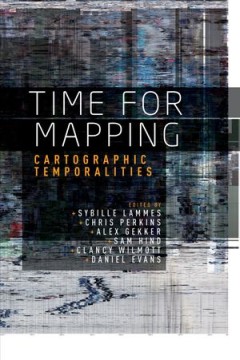Filter by

Erinnerungsorte in Belgien; Instrumente lokaler, regionaler und nationaler Si…
Die Identitätsbildung des heutigen Belgiens ist durch ein komplexes Zusammenspiel von Regionen,
- Edition
- -
- ISBN/ISSN
- 9780000000597, 9783839445150
- Collation
- -
- Series Title
- -
- Call Number
- T 300.9 KAM e

Engaged Humanities; Rethinking Art, Culture, and Public Life
What is the role of the humanities at the start of 21st century? In the last few decades, the various disciplines of the humanities (history, linguistics, literary studies, art history, media studies) have encountered a broad range of challenges, related to the future of print culture, to shifts in funding strategies, and to the changing contours of culture and society.
- Edition
- -
- ISBN/ISSN
- 9789048550401
- Collation
- -
- Series Title
- -
- Call Number
- T 300.9 SWI e

Beyond Enlightenment
The vast majority of books on Buddhism describe the Buddha using the word enlightened, rather than awakened. This bias has resulted in Buddhism becoming generally perceived as the eponymous religion of enlightenment. Beyond Enlightenment is a sophisticated study of some of the underlying assumptions involved in the study of Buddhism (especially, but not exclusively, in the West). It investigate…
- Edition
- -
- ISBN/ISSN
- 9780203098783
- Collation
- -
- Series Title
- -
- Call Number
- 306.6 COH b

Aquaculture Law and Policy
The aquaculture industry is fast expanding around the globe and causing major environmental and social disruptions. The volume is about getting a 'good governance' grip on this important industry. The book highlights the numerous law and policy issues that must be addressed in the search for effective regulation of aquaculture. Those issues include among others: the equitable and fair assignmen…
- Edition
- -
- ISBN/ISSN
- 9780203966556
- Collation
- -
- Series Title
- -
- Call Number
- 639.8 AQU a

South-North Migration of EU Citizens in Times of Crisis
Introduction This open access book looks at the migration of Southern European EU citizens (from Portugal, Spain, Italy, Greece) who move to Northern European Member States (Belgium, France, Germany, United Kingdom) in response to the global economic crisis.Its objective is twofold. First, it identifies the scale and nature of this new Southern European emigration and examines these migrants’…
- Edition
- -
- ISBN/ISSN
- 9783319397634
- Collation
- -
- Series Title
- -
- Call Number
- 351.81

Self-Harm As Violence: When Victim and Perpetrator Are One
This edited collection explores the agency of women who do violence and have violence done to them. Topics covered include rape, pornography, prostitution, suicide bombing and domestic violence. The volume contributes to the philosophical and theoretical debate, as well as offering practical, social and political responses to the issues examined.
- Edition
- -
- ISBN/ISSN
- 9781137015112
- Collation
- -
- Series Title
- -
- Call Number
- 320.01 MAR s

Research, Ethics and Risk in the Authoritarian Field
research ethics; authoritarian countries; research methodology; research in the authoritarian field; risk and field research; ethics and field research; authoritarianism; advice for field research; research transparency; research methods; mental impact of field research; planning for field research; dangers of field research
- Edition
- -
- ISBN/ISSN
- 9783319689654
- Collation
- -
- Series Title
- -
- Call Number
- 320.01 GLA r

Time for mapping
"The digital era has brought about huge transformations in the map itself, which to date have been largely conceptualised in spatial terms. Novel objects, forms, processes and approaches have emerged and pose new, pressing questions about the temporality of digital maps and contemporary mapping practices: in spite of its implicit spatiality, digital mapping is strongly grounded in time. This co…
- Edition
- -
- ISBN/ISSN
- 9781526122520
- Collation
- -
- Series Title
- -
- Call Number
- -

Technical politics Andrew Feenberg’s critical theory of technology
This is the first monograph devoted to the work of one of the foremost contemporary advocates of contemporary critical theory, Andrew Feenberg. It focuses on Feenberg’s central concept, technical politics, and explores his suggestion that democratising technology design is key to a strategic understanding of the process of civilisational change. In this way, it presents Feenberg’s intervent…
- Edition
- -
- ISBN/ISSN
- 9781526105349
- Collation
- -
- Series Title
- -
- Call Number
- -

Contemporary Turkey at a Glance: Interdisciplinary Perspectives on Local and …
Introduction Turkey has witnessed significant social, cultural, and political change over the last decades. This transformation has manifested itself in all segments of society and resulted in the alteration of political ideologies and institutions. The twelve authors of this volume shed light on the complexities of a changing Turkey through an interdisciplinary perspective. Their application o…
- Edition
- -
- ISBN/ISSN
- 9783658049164
- Collation
- -
- Series Title
- -
- Call Number
- 360 CON c
 Computer Science, Information & General Works
Computer Science, Information & General Works  Philosophy & Psychology
Philosophy & Psychology  Religion
Religion  Social Sciences
Social Sciences  Language
Language  Pure Science
Pure Science  Applied Sciences
Applied Sciences  Art & Recreation
Art & Recreation  Literature
Literature  History & Geography
History & Geography